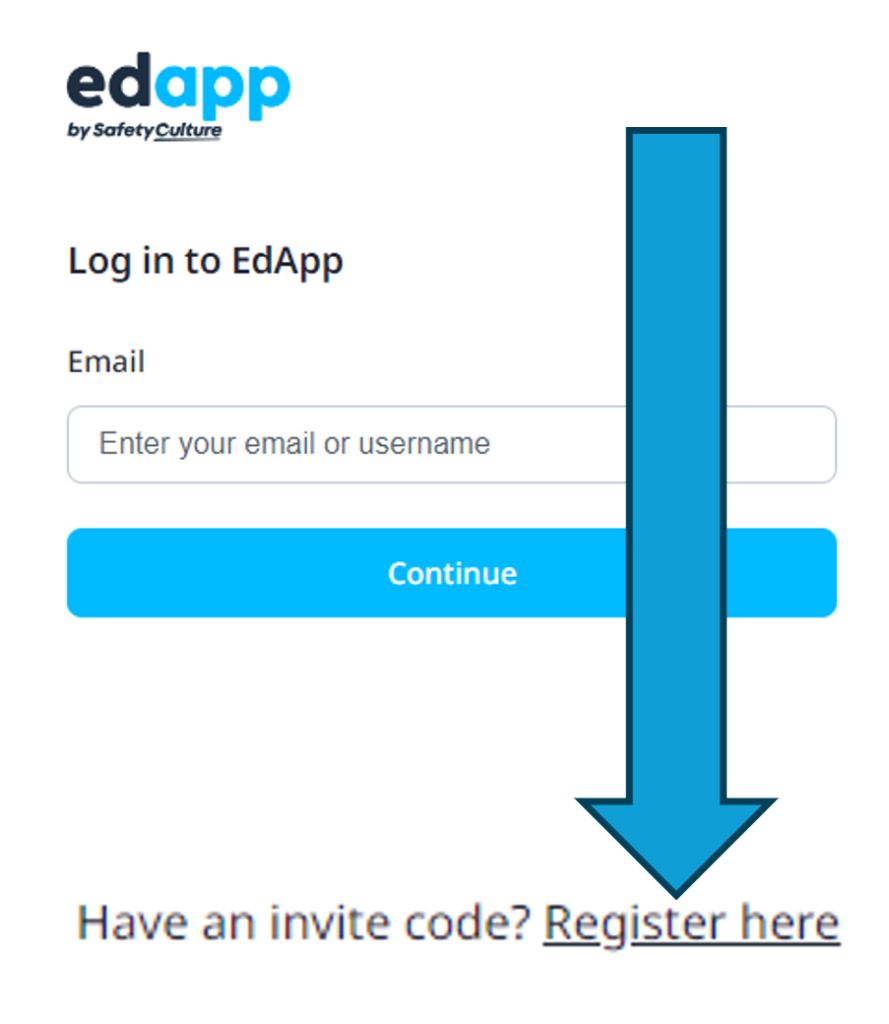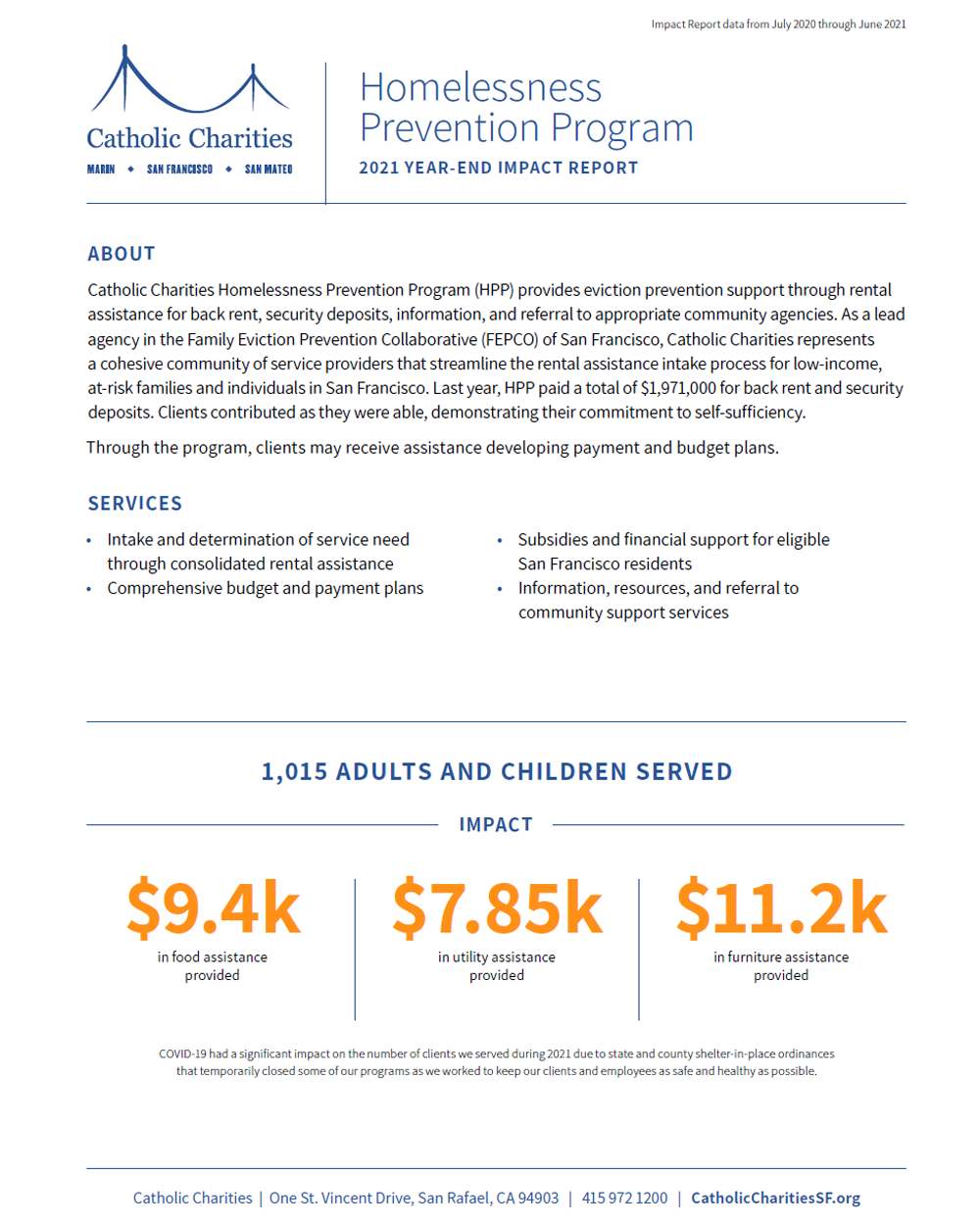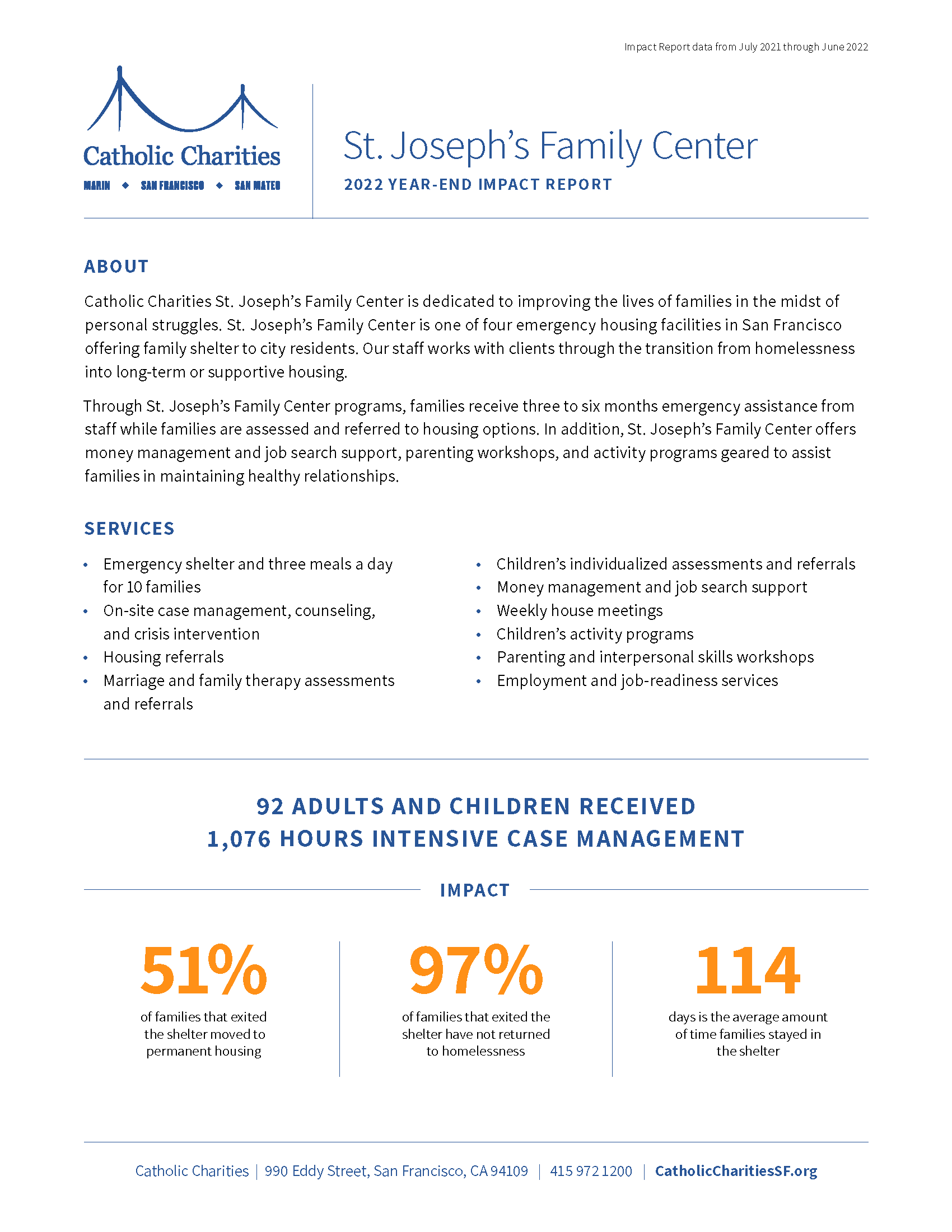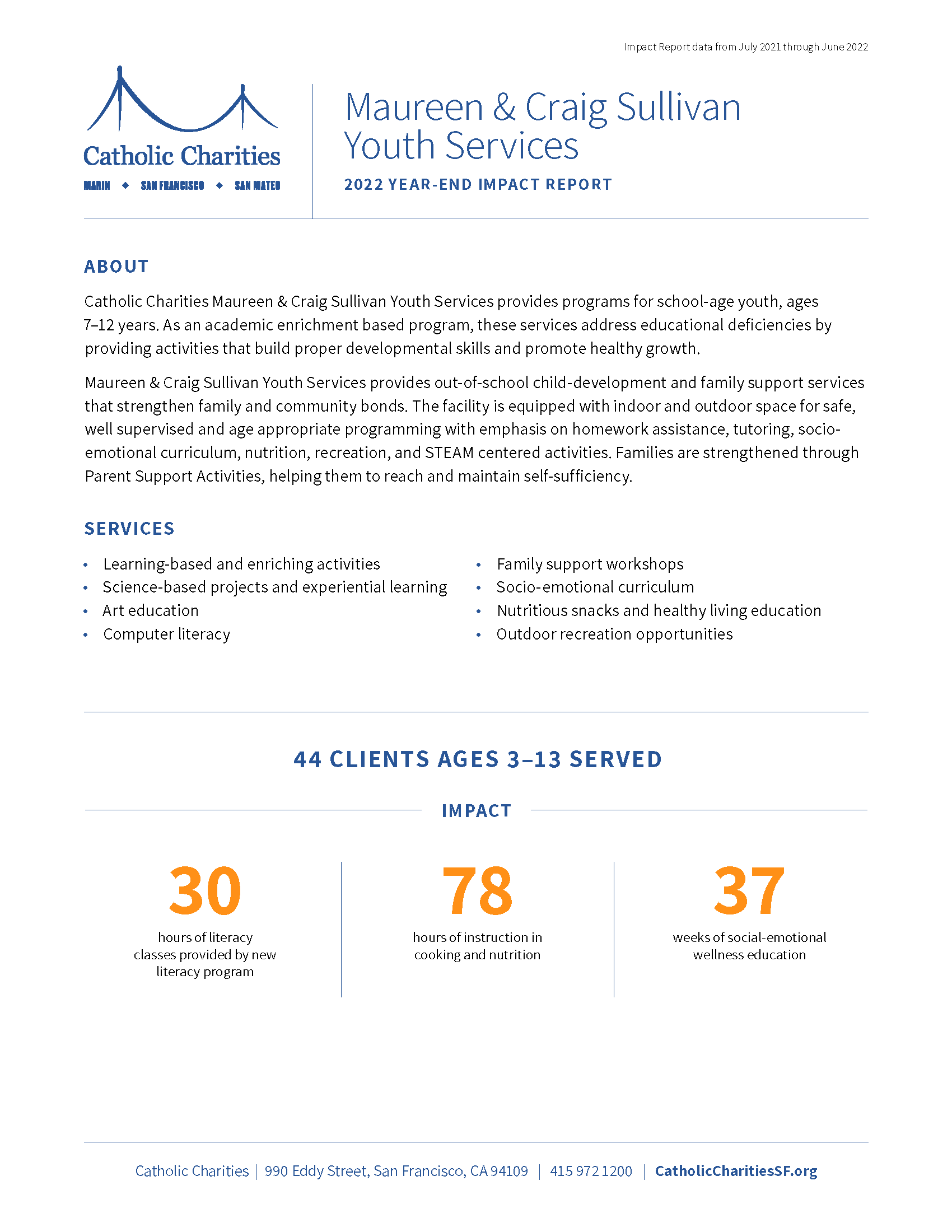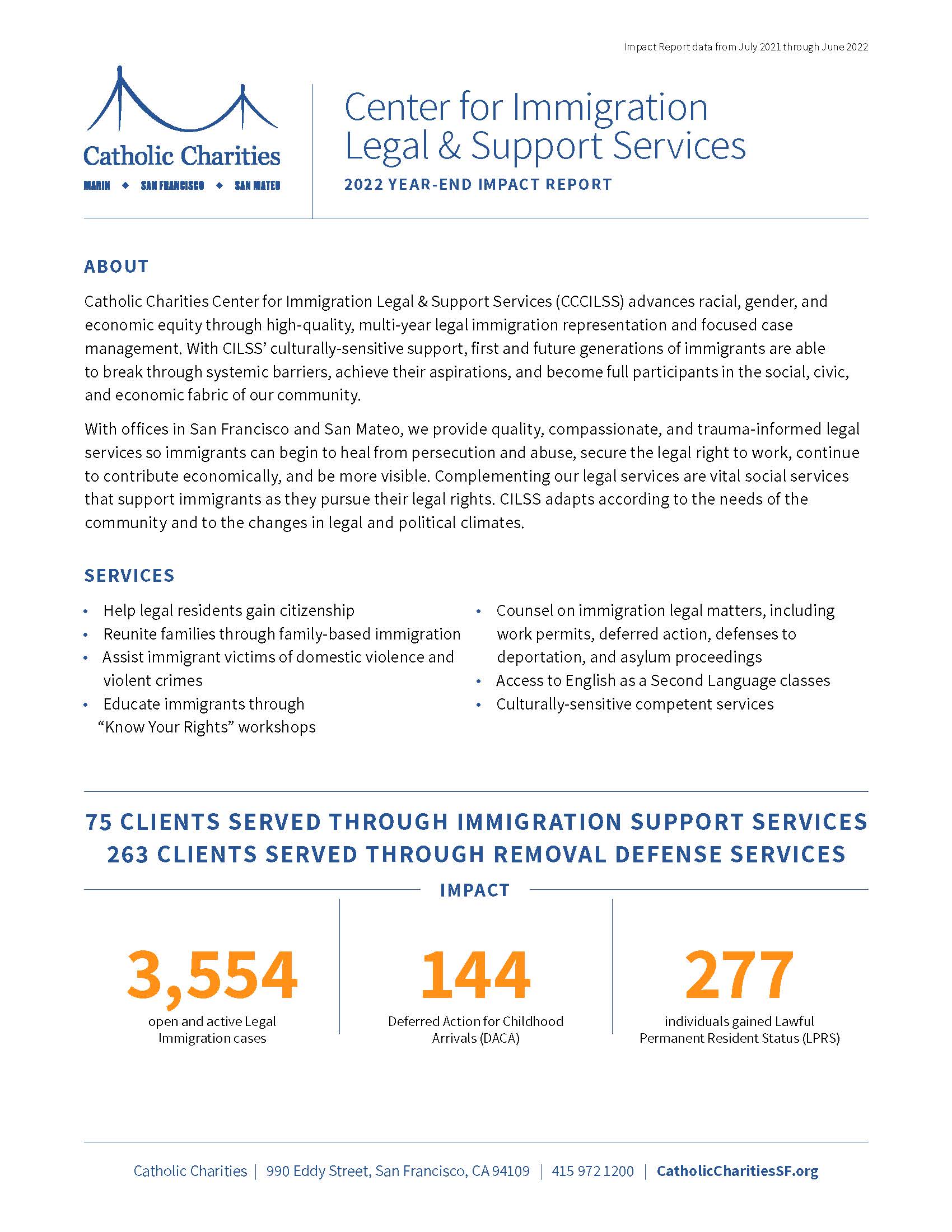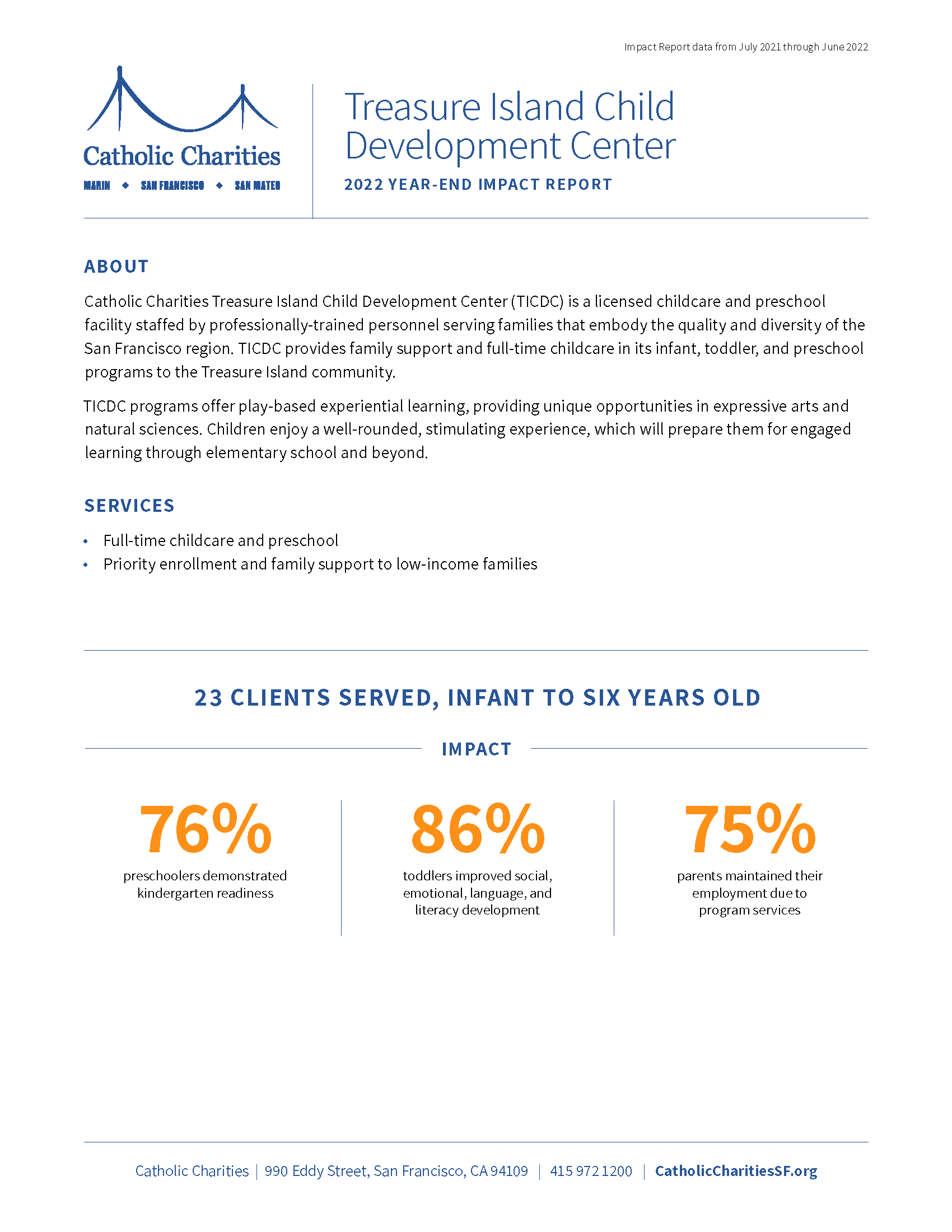Catholic Charities CYO of the Archdiocese of San Francisco Notice Regarding a Data Security Incident
Catholic Charities CYO of the Archdiocese of San Francisco
Notice Regarding a Data Security Incident
The privacy and security of personal information that Catholic Charities CYO of The Archdiocese of San Francisco (“Catholic Charities”) maintains is of the utmost importance.
Catholic Charities discovered a network security incident impacting our systems. Upon learning of this issue, Catholic Charities immediately commenced a prompt and thorough investigation. As part of our investigation, we have been working very closely with external cybersecurity professionals experienced in handling these types of incidents.
After an extensive forensic investigation and manual review, we confirmed on July 31, 2024 that, between September 13, 2023 and September 29, 2023, certain impacted files containing personal information may have been subject to unauthorized access or acquisition. On September 4, 2024, additional individuals were identified as having personal information contained in the files.
The impacted data contained the personal information of certain individuals, including full names in combination with one or more of the following: date of birth, Social security number, financial account and/or banking information, driver’s license number or state identification number, medical information, passport number, health insurance information, national identification number, medical history, government issued national identification number, email login and password.
Catholic Charities sent notification letters to each potentially affected individual for whom it has a last known address. The notice contains information about the incident, as well as information and resources to help individuals protect their information. We are offering complimentary identity monitoring and protection services for individuals whose Social Security number was involved in this incident. We recommend that these individuals enroll in the services provided to increase the likelihood that their information remains protected.
Catholic Charities has no evidence that any data has been misused. Nevertheless, Catholic Charities encourages impacted individuals to take actions to help protect their personal information. These actions include placing a fraud alert and/or security freeze on their credit files, and/or obtaining a free credit report. Additionally, individuals should always remain vigilant in reviewing their financial account statements, explanation of benefits statements and credit reports for fraudulent or irregular activity on a regular basis and report any suspicious activity to the proper authorities.
Catholic Charities remains fully committed to maintaining the privacy of personal information in its possession and has taken many precautions to safeguard it, including continually evaluating and modifying its practices and internal controls.
For further questions about this incident, you may contact the dedicated response line at 1-833-999-3369, available Monday through Friday from 8 am – 8 pm Eastern time, excluding holidays.
– OTHER IMPORTANT INFORMATION –
1.Placing a Fraud Alert on Your Credit File.
We recommend that you place an initial one (1) year “fraud alert” on your credit files, at no charge. A fraud alert tells creditors to contact you personally before they open any new accounts. To place a fraud alert, call any one (1) of the three (3) major credit bureaus at the numbers listed below. As soon as one credit bureau confirms your fraud alert, they will notify the others.
| Equifax
P.O. Box 105069 Atlanta, GA 30348-5069 https://www.equifax.com/personal/credit-report-services/credit-fraud-alerts/ (800) 525-6285 |
Experian
P.O. Box 9554 Allen, TX 75013 https://www.experian.com/fraud/center.html (888) 397-3742 |
TransUnion
Fraud Victim Assistance Department P.O. Box 2000 Chester, PA 19016-2000 https://www.transunion.com/fraud-alerts (800) 680-7289 |
2. Consider Placing a Security Freeze on Your Credit File.
If you are very concerned about becoming a victim of fraud or identity theft, you may request a “Security Freeze” be placed on your credit file, at no charge. A security freeze prohibits, with certain specific exceptions, the consumer reporting agencies from releasing your credit report or any information from it without your express authorization. You may place a security freeze on your credit report by contacting all three nationwide credit reporting companies at the numbers below and following the stated directions or by sending a request in writing, by mail, to all three (3) credit reporting companies:
| Equifax Security Freeze
P.O. Box 105788 Atlanta, GA 30348-5788 https://www.equifax.com/personal/credit-report-services/credit-freeze/ (888) 298-0045 |
Experian Security Freeze
P.O. Box 9554 Allen, TX 75013 (888) 397-3742 |
TransUnion Security Freeze
P.O. Box 160 Woodlyn, PA 19094 https://www.transunion.com/credit-freeze (888) 909-8872 |
|||
In order to place the security freeze, you will need to supply your name, address, date of birth, Social Security number and other personal information. After receiving your freeze request, each credit reporting company will send you a confirmation letter containing a unique PIN (personal identification number) or password. Keep the PIN or password in a safe place. You will need it if you choose to lift the freeze.
3. Obtaining a Free Credit Report.
Under federal law, you are entitled to one (1) free credit report every twelve (12) months from each of the above three major nationwide credit reporting companies. Call 1-877-322-8228 or request your free credit reports online at www.annualcreditreport.com. Once you receive your credit reports, review them for discrepancies. Identify any accounts you did not open or inquiries from creditors that you did not authorize. Verify all information is correct. If you have questions or notice incorrect information, contact the credit reporting company.
4. Additional Helpful Resources.
Even if you do not find any suspicious activity on your initial credit reports, the Federal Trade Commission (FTC) recommends that you check your credit reports periodically. Checking your credit report periodically can help you spot problems and address them quickly.
If you find suspicious activity on your credit reports or have reason to believe your information is being misused, call your local law enforcement agency and file a police report. Be sure to obtain a copy of the police report, as many creditors will want the information it contains to absolve you of the fraudulent debts. You may also file a complaint with the FTC by contacting them on the web at www.ftc.gov/idtheft, by phone at 1-877-IDTHEFT (1-877-438-4338), or by mail at Federal Trade Commission, Consumer Response Center, 600 Pennsylvania Avenue, NW, Washington, DC 20580. Your complaint will be added to the FTC’s Identity Theft Data Clearinghouse, where it will be accessible to law enforcement for their investigations. In addition, you may obtain information from the FTC about fraud alerts and security freezes.
If your personal information has been used to file a false tax return, to open an account or to attempt to open an account in your name or to commit fraud or other crimes against you, you may file a police report in the City in which you currently reside.





